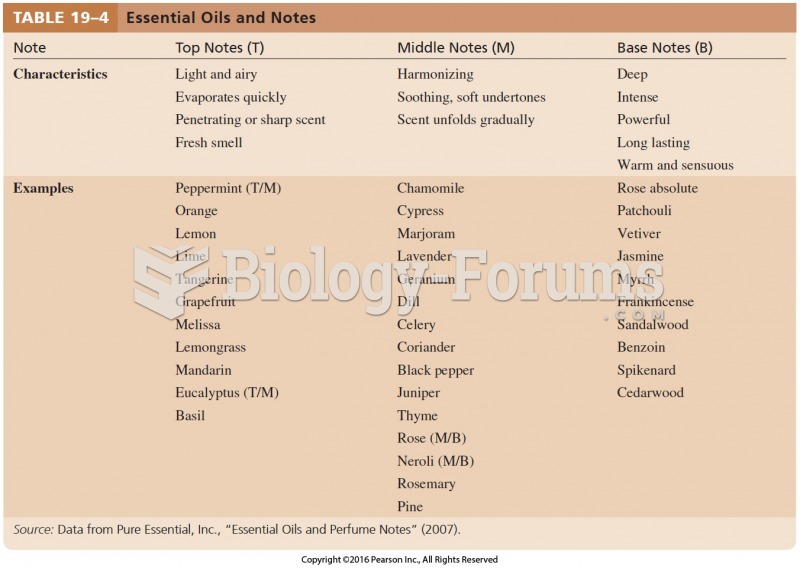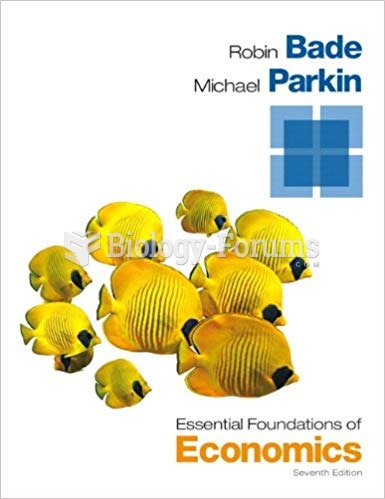|
|
|
In women, pharmacodynamic differences include increased sensitivity to (and increased effectiveness of) beta-blockers, opioids, selective serotonin reuptake inhibitors, and typical antipsychotics.
A seasonal flu vaccine is the best way to reduce the chances you will get seasonal influenza and spread it to others.
Astigmatism is the most common vision problem. It may accompany nearsightedness or farsightedness. It is usually caused by an irregularly shaped cornea, but sometimes it is the result of an irregularly shaped lens. Either type can be corrected by eyeglasses, contact lenses, or refractive surgery.
Though the United States has largely rejected the metric system, it is used for currency, as in 100 pennies = 1 dollar. Previously, the British currency system was used, with measurements such as 12 pence to the shilling, and 20 shillings to the pound.
The liver is the only organ that has the ability to regenerate itself after certain types of damage. As much as 25% of the liver can be removed, and it will still regenerate back to its original shape and size. However, the liver cannot regenerate after severe damage caused by alcohol.
 Key anatomical features of Homo habilis include reduced facial size, a parabolic palate, and some br
Key anatomical features of Homo habilis include reduced facial size, a parabolic palate, and some br
 Mead analyzed taking the role of the other as an essential part of learning to be a full-fledged ...
Mead analyzed taking the role of the other as an essential part of learning to be a full-fledged ...





